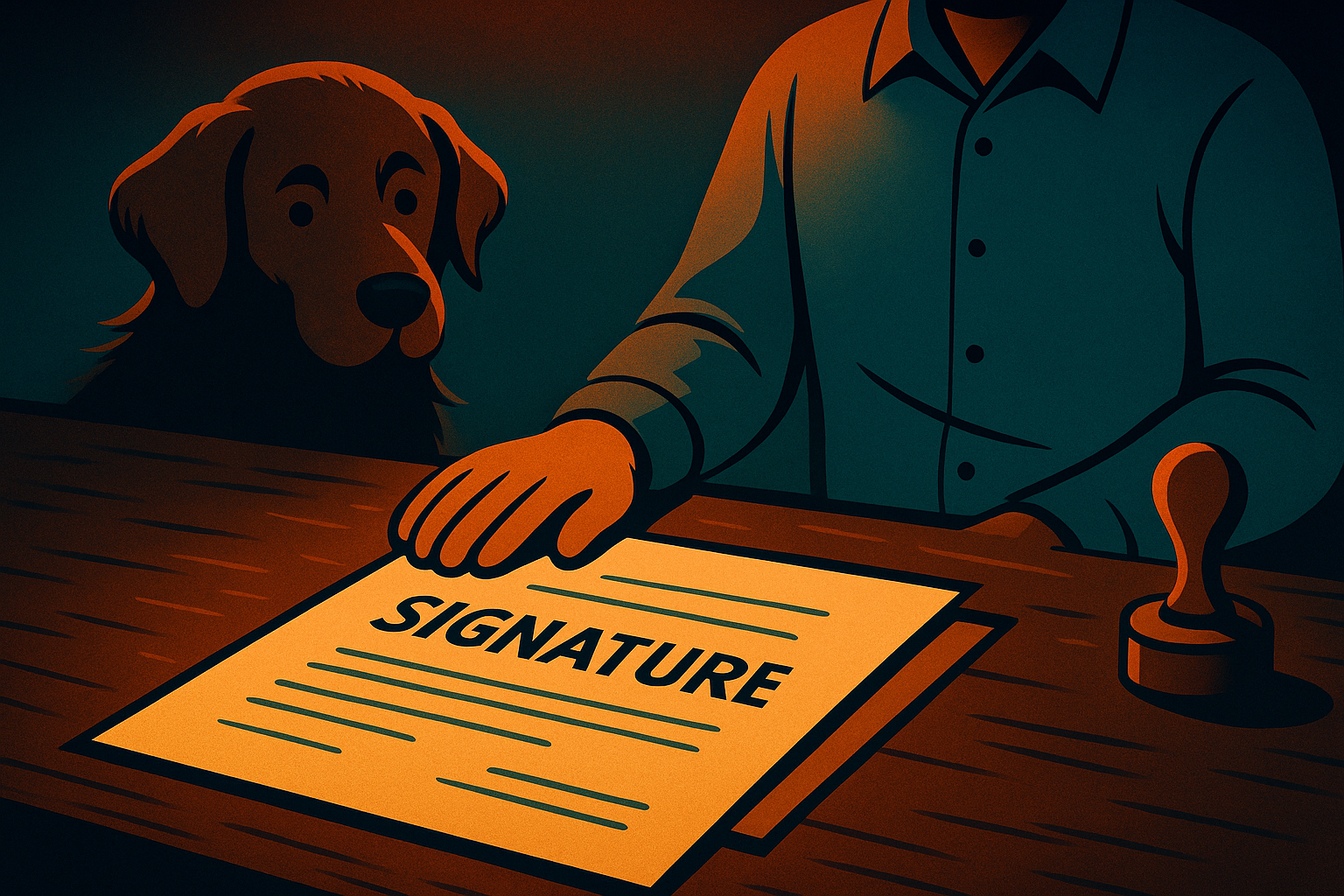
It started like every other signing: a confident signer, a tidy stack of papers, and that familiar air of “I’ve got this.”
He had his ID, his pen, his coffee, and an optimism that could power a small town.
But the moment I saw it—his name wasn’t quite the same—I felt the faint chill of every notary’s recurring nightmare.
See, his driver’s license said Robert J. Thompson.
The documents? Bob Thompson.
Now, to most people, that’s harmless. Bob, Robert—it’s all the same guy, right?
Not in the world of notarial precision. In our world, “close enough” doesn’t cut it.
Because when the names don’t match, the document doesn’t fly.
He looked at me, bewildered. “But everyone calls me Bob!”
I nodded sympathetically. “The document doesn’t know that.”
That’s when the slow realization set in.
He’d have to reprint.
Resign.
Reinitial.
Possibly cry.
This is what I call a “paperwork horror story” — not because anyone’s in danger, but because it’s the kind of bureaucratic chaos that haunts both signers and notaries alike.
And it’s avoidable.
Here’s what went wrong — and how you can make sure your next signing doesn’t turn into a sequel:
1️⃣ Names must match exactly.
If your ID says Robert James Thompson, but your loan package says Bob Thompson, the notary can’t legally proceed.
The name on the ID and the name on the documents must match exactly as stated — no nicknames, abbreviations, or “that’s what I usually go by.”
If you notice a difference, stop and contact the title company before your signing appointment.
You’ll save yourself hours — and a small existential crisis.
2️⃣ Middle initials matter.
Sometimes, the mismatch isn’t even a nickname — it’s a missing middle initial.
But that single letter still matters.
A “Robert J. Thompson” signing as “Robert Thompson” can trigger rejection from the lender or recorder’s office.
When in doubt, add the initial back in or have the docs reissued.
3️⃣ Spelling counts, too.
You’d be surprised how many errors come from typos: a missing “e” here, an extra “s” there.
Those aren’t harmless.
If a name is spelled differently anywhere in the document, the safest course is to get it corrected before signing.
4️⃣ Your notary isn’t being difficult — they’re protecting your document.
It might feel like overkill when your notary refuses to proceed with a simple name difference, but it’s the law — and it protects you.
If a document is rejected later, it’s the signer (not the notary) who bears the delay.
We’re not there to create obstacles. We’re there to make sure every signature holds up — legally and beyond.
The moral of the story?
Before you book your appointment, check your ID and check your documents.
Because nothing drains a good signing faster than realizing your “Bob” isn’t legally your “Robert.”
And if you ever want to avoid your own paperwork horror story, you know who to call.Northwest Notary On The Go — bringing clarity and confidence to every signature.
